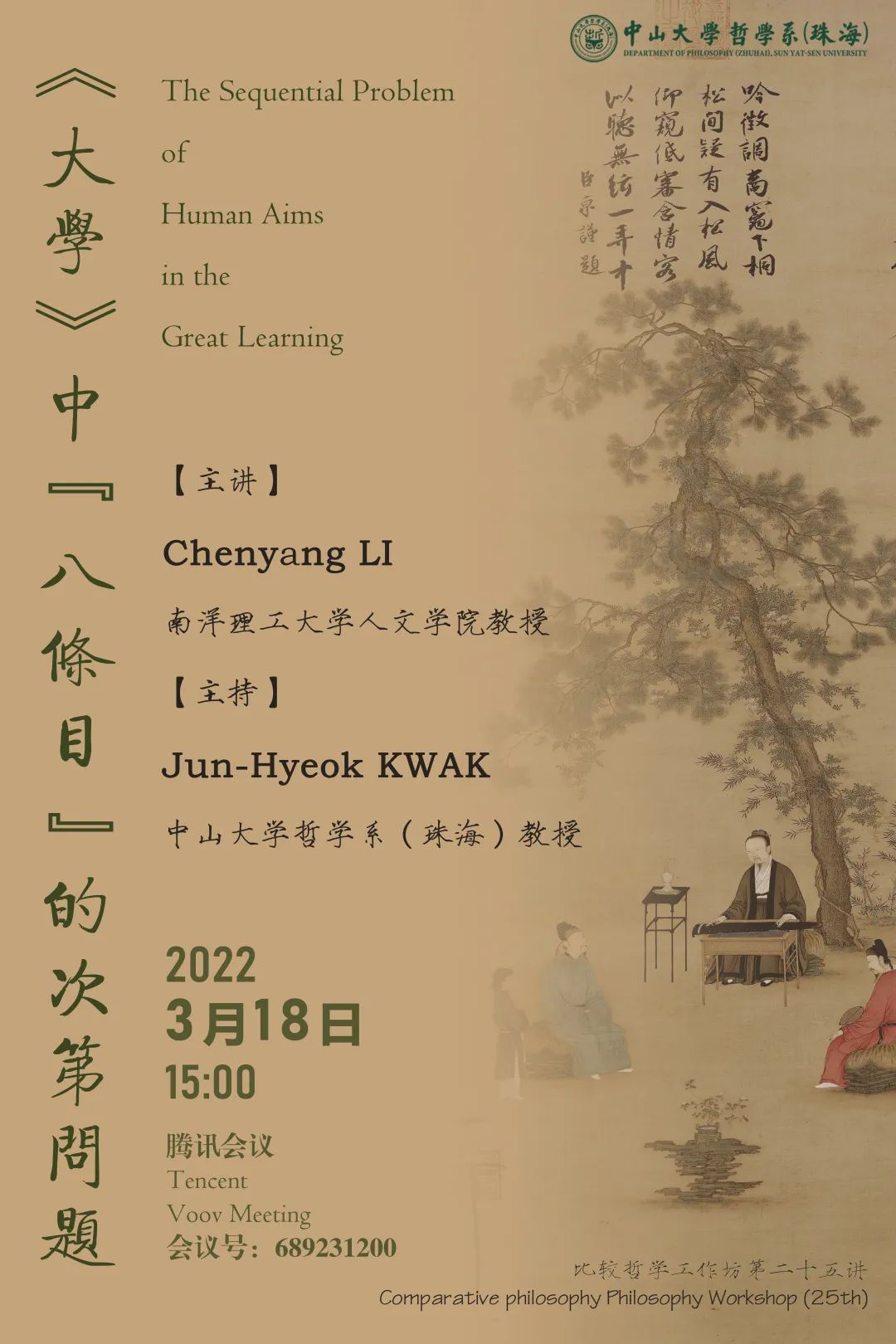比较哲学工作坊第二十五讲:《大学》中“八条目”的次第问题

Comparative Philosophy Workshop (25th)
1
Organizer
●Department of Philosophy (Zhuhai),Sun Yat-sen University
2
Topic
●The Sequential Problem of Human Aims in the Great Learning (Virtual)
3
Speaker
●Chenyang LI
Professor, School of Humanities, Nanyang Technological University
4
Moderator
●Jun-Hyeok KWAK
Professor, Department of Philosophy (Zhuhai), Sun Yat-sen University
5
Time
●Mar. 18. 2022 15:00
6
Place
●Tencent(VOOV)
ID: 689-231-200
ABSTRACT
In this presentation, I examine the relations among the eight human aims in the Confucian classic Great Learning (Daxue 大學) and problematize various interpretations by its commentators and translators. I call the problem “sequential problem” because it is about the issue of a sequence among these aims, or lack thereof, and the nature of the sequence. After examining different interpretations, I propose a solution to the problem that the sequence of these Confucian human aims is developmentally temporal yet not stage-exclusive, by drawing on the model of Erik Erikson’s developmental theory. Accordingly, while there is a temporal progress in achieving these aims, they nevertheless should be pursued concurrently throughout a person’s life.
/
比较哲学工作坊第二十五讲
主办
中山大学哲学系(珠海)
主题
《大学》中“八条目”的次第问题(线上)
主讲
Chenyang LI(李晨阳) 南洋理工大学人文学院教授
主持
Jun-Hyeok KWAK (郭峻赫)中山大学哲学系(珠海)教授
时间
2022年3月18日15:00 开始
地点
腾讯会议号:689-231-200
摘要
本讲考察儒家经典《大学》中八条目之间的关系,并将各种译注者的诠释问题化。我将这一问题称为“次第问题”,因为它是关于这些条目之间的渐进次第——或欠缺次第——以及次第之本质的问题。在考察不同的诠释后,通过爱利克·埃里克森的发展理论,我将提出一种对这些儒家条目之次第问题的解决方案,即这些儒家条目在发展上是时间性的,却不是阶段性的。因此,尽管这些条目的实现是一个时间性的过程,它们仍应当在人的一生中被同时追求。


